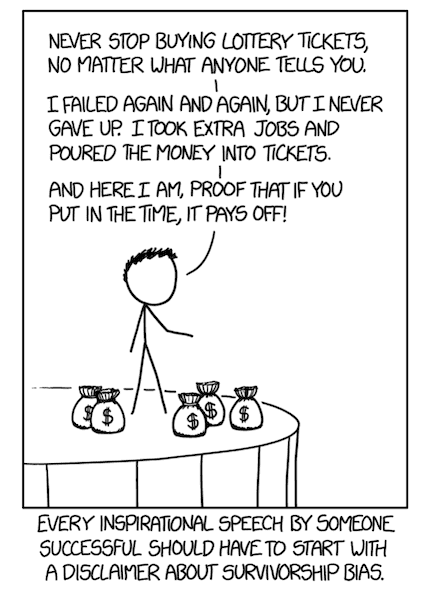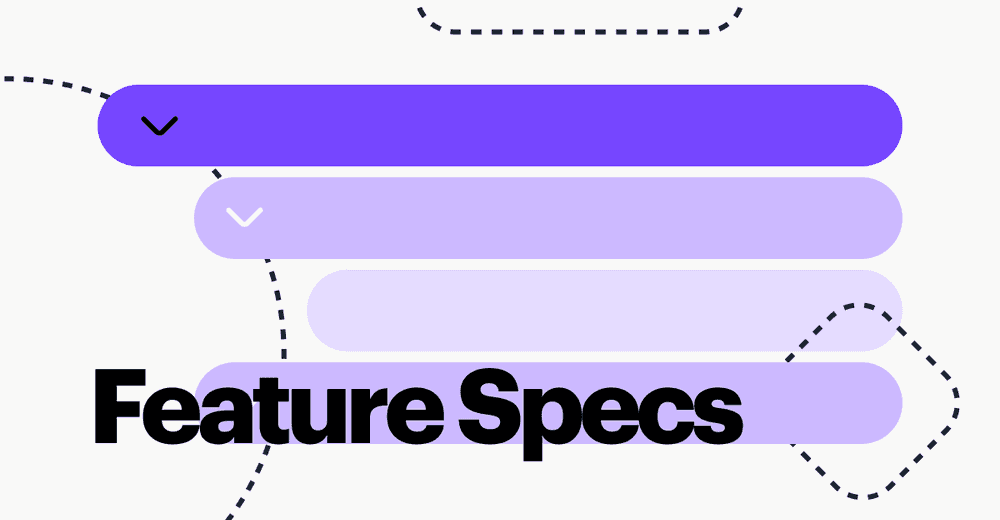How to Start Your Own Product: To-dos and Not-to-dos [13/100]
Imagine: you’re a programmer. You’ve been working for some company for a couple of years now. There’s a startup fever going on, inspired by the Silicon Valley series and the actual Silicon Valley. So you’ve definitely had intrusive thoughts like: “I’m not worse than all these people,” or “dammit, this application is the same as I thought of a year ago!” Or even “I’m fed up with my managers, time to do something of my own.”
So you’ve been having these thoughts. They spun in your head, went away, and then came back after you were reading yet another article about a cool startup. Or they came back after you received another urgent task from a manager. As all kinds of gurus say, why are you still not doing anything on the way to your dream company?
In fact, launching a new product is easy as pie. True story. They are fairly easy to make and market. But making money on a new product is a whole different story—and much more difficult to do.
There’s a great variety of ways and motivations to start new products, so providing one universal recipe of “how to start your own product” is impossible. This blog post can never fit the lush branchy tree of the options available. This is why I limit my multitudes to two sets of rather superficial tips (which might as well not work, of course). The first bunch is about what to do. The second—I see you smirk!—is about what not to do.
Disclaimer: I’ve deliberately written both sets of tips in a grown-up tone to make it harder to read and remember.
What you should do
Learn (more) about design
One fancy thing about real good designers is that they understand how things work.
You see, design is much more than beautiful images, colors, flat icons, and big headlines. That’s all style matters. Design is about looking much deeper and into the essence of things, defining their purpose and utility. Try looking up what Dieter Rams did, read some Norman, plunge into the history of graphical interfaces, wander around in design museums every once in a while. Try to understand ideas and look at ordinary things with a designer’s eyes. I believe that comprehending design is a straightforward way to create your own products. It makes finding flaws in existing processes and applications much easier—and these flaws often turn into excellent opportunities for new products.

Solve your problem
What is that you miss in this world? Is there no perfect blogging platform? Do all graphic editors suck? Do plant recognition apps work shitty? Can’t choose nail polish? Planning vacations at work is a tiresome, muddled process?
Make a product that solves your own problem. Just for fun. Use the technologies you want to learn. Work on this product after work and on weekends. First and foremost, have fun with the creation process.
Grasp the marketing basics
You need a basic understanding of markets, advertising, placement, and launching products to the market. It sounds much more complicated than it is. You just need to immerse yourself in this area for several months. There is an incredible amount of material online on how to get a product to market. Read it. Well, or find a person who will help you do this—but you’ll need to give them a share in your product.
What you shouldn’t do
Don’t read business books
Don’t even bother to read all the autobiographies of famous businessmen, pseudo-studies by James Collins, 200 tips for young entrepreneurs, thick opuses about Steve Jobs, and so on. Or rather, you can read it as fiction, but don’t take the described behaviors, decisions, and advice seriously.
Books like this exude survivorship bias, are speculating on the outdated context, and serve you a bunch of wrong conclusions. If you really read anything on business success, read the stories of failure (or fraud). Much more interesting insights and useful thoughts can be picked up there. But don’t get too carried away either.

Don’t quit your regular job (yet)
Some people think creating a new product requires a state of total focus. Nah. It is possible to make something decent by working evenings and weekends. Especially when you’re young and healthy, you can easily go on like that for a couple of years. The downside is that everything will take much longer, of course. The bright side is that you won’t need to worry about money. Anyways, make sure you really enjoy working on your own product first. Try working on it in your spare time for, like, 3 months before quitting your job.
Don’t look for investors
It’s somewhat normal to think that nothing decent can be done without attracting investors. This is problematic, to say the least.
First of all, it is much more difficult to find the money for an idea than for a working application. Accordingly, it’s smarter to first spend time on the product than on seeking funding. Secondly, launching your product without an investor is possible: the money needs to be replaced with time and a team of friends ready to work for a share in the (future) company. You may need investors, but certainly not right away.
Don’t trust everything people say
Doubt what experts say. Doubt what your friends say. Doubt what I say. Don’t trust anyone at all. Human history is, in fact, the history of mistakes made by experts. 12 publishers refused to print Harry Potter. 7 investors did not invest in the idea of Airbnb (though some of them are probably happy about it now. Understand two things: no one understands shit about startups, and no one can predict the future. It might be that you’re right. Launch the product. That’s all. 🖖
Psst... Wanna try Fibery? 👀
Infinitely flexible product discovery & development platform.


![Be different [23/100]](/blog/static/64355cda924c61c299f2978da5ba6d31/f4829/be-different.jpg)
![5 Biggest Problems in Software Development [22/100]](/blog/static/08512600f4074191672f6e4b07557f7f/d8027/SoftDevProblems.png)